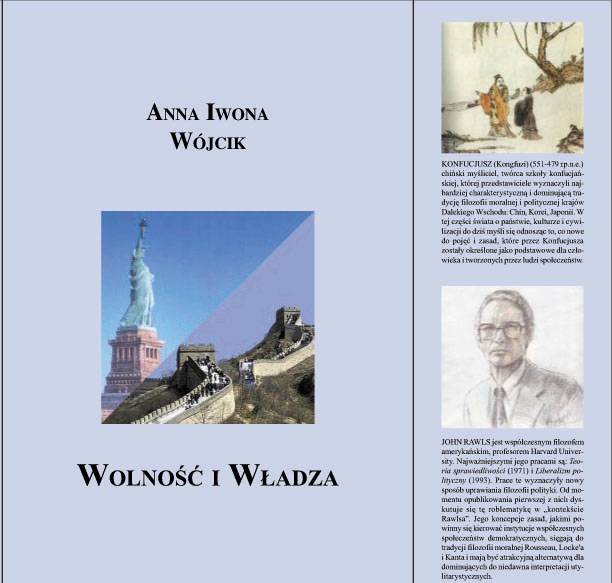|
The problem of mutual relationships between Confucianism and liberal democracy can be vied from both points of view. One is through the difficulties that the countries of Confucian civilisation face while adapting to the political conditions brought by the technological rapprochement to western democracies. The other approach to the issue, entailing the conceptional openness for novelties so characteristic for the Western civilisation, involves the intention of broadening our experience, our perception of the world. We could replace the juvenile fascination in the so-called "wisdom of the East" with the maturity of thorough knowledge of this wisdom. We could attempt to complement the legend of the efficiency which wisdom gives to the civilised people in the technological race, which in the West is commonly perceived as tantamount to progress, and understanding of experience, which this efficiency rises from.
Is, therefore, Rawls's claim that cultural differences pertain only to the scope of application of notions, and weight that is attached to them true? The comparative research conducted proves that in the cases discussed they are far more profound. We cannot find certain liberal concepts and notions in any form of Confucianism. This is true about such an important notion as freedom. Nor does Confucianism enjoy the ideas of equality, progress, citizenship or the whole complex of issues related to objective judgement.
On the other hand, in liberal democracy we could search for the notion of organic hierarchy, growth, and development in vain, as people civilised through liberal democracy have no powerful sense of locality. In both the cases we encounter a range of contradistinctive, opposing valuations. For some, involvement or participation in the environment is a positive effect, while for others it is a social (and psychological) pathology. Some can see no beneficial features in a conflict, while the others see it as the necessary condition for creativity and development. One party sees statute law to be only capable of rallying impertinent people, while the other perceives the civilising element of culture in it, and so forth.
How is such a profound dissimilarity to be dealt with? I believe that in my work I managed to justify the claim that there is no sense whatsoever in attempting to answer the question which set of notions is the true one, and which, therefore, false. For the transition from one to the other can only be conducted through gaining new experience; through the broadening of ethical and moral sensibility. |


|